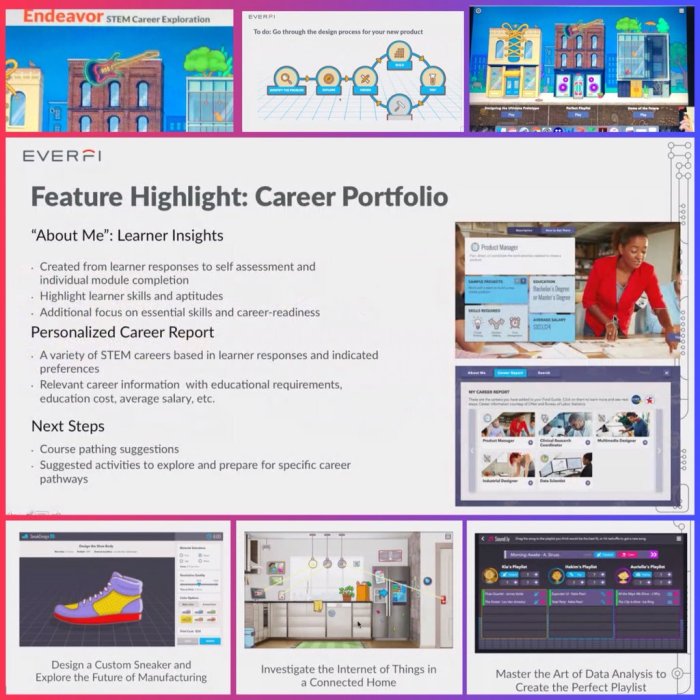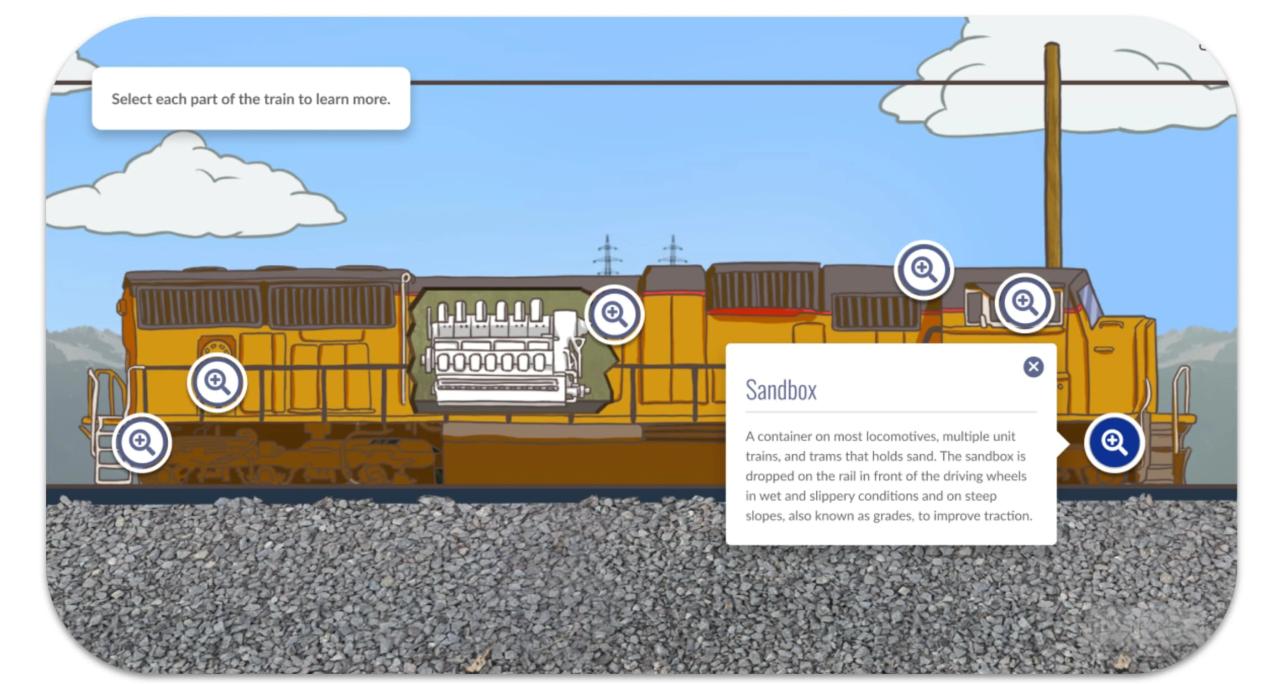Unveiling the Endeavor STEM Career Exploration Answers, this exploration embarks on a journey of discovery, empowering you with the knowledge to navigate the dynamic world of STEM careers. Delve into the depths of STEM education, unravel the diverse spectrum of STEM professions, and equip yourself with the essential skills and qualifications to excel in this ever-evolving field.
Through a comprehensive analysis of the job market and industry trends, you will gain insights into the burgeoning demand for STEM professionals. Embark on a self-assessment and career counseling journey to identify your passions and chart a personalized career path.
Hands-on experiences, internships, and mentorships will ignite your practical knowledge and connect you to a network of experts.
1. Career Exploration and STEM Education

Career exploration in STEM fields empowers individuals to identify and pursue careers that align with their interests and abilities. STEM education, encompassing science, technology, engineering, and mathematics, plays a pivotal role in preparing students for these careers by equipping them with the knowledge, skills, and critical thinking abilities essential for success in these dynamic fields.
The benefits of STEM education extend beyond career preparation. STEM subjects foster problem-solving, analytical thinking, and creativity, which are transferable skills valuable in various aspects of life. Moreover, STEM education contributes to innovation, economic growth, and the advancement of society.
Examples of STEM Career Exploration Programs and Resources, Endeavor stem career exploration answers
- Science Olympiad:A competition that challenges students to apply their STEM knowledge in practical scenarios.
- FIRST Robotics:A program that engages students in building and programming robots to compete in challenges.
- Exploratorium:A museum that provides interactive exhibits and educational programs to promote STEM exploration.
2. Types of STEM Careers

STEM careers encompass a wide range of fields and job roles. These can be broadly categorized into:
Engineering
- Mechanical Engineer:Designs and builds mechanical systems, such as engines and machinery.
- Civil Engineer:Plans, designs, and oversees the construction and maintenance of infrastructure, such as bridges and buildings.
- Electrical Engineer:Designs and develops electrical systems, including power generation and distribution.
Science
- Biologist:Studies living organisms, including their structure, function, and interactions with the environment.
- Chemist:Studies the composition, structure, properties, and reactions of matter.
- Physicist:Studies the fundamental laws of nature and the behavior of matter and energy.
Technology
- Software Engineer:Designs, develops, and maintains software applications.
- Data Scientist:Collects, analyzes, and interprets data to extract insights and make predictions.
- Computer Network Architect:Designs and manages computer networks, ensuring efficient and secure communication.
Mathematics
- Statistician:Collects, analyzes, and interprets data to draw conclusions and make predictions.
- Actuary:Assesses and manages financial risks using mathematical and statistical models.
- Operations Research Analyst:Uses mathematical and analytical techniques to improve efficiency and decision-making in organizations.
3. Skills and Qualifications for STEM Careers
Success in STEM careers requires a combination of technical skills, problem-solving abilities, and critical thinking.
Essential Skills
- Technical Skills:Proficiency in relevant software, programming languages, or laboratory techniques.
- Problem-Solving Abilities:Identifying and solving complex problems through logical reasoning and analysis.
- Critical Thinking:Evaluating information, forming hypotheses, and drawing conclusions.
Educational Pathways and Training Programs
- Bachelor’s or Master’s Degree:STEM-related degrees provide the foundational knowledge and skills required for entry-level positions.
- Certificates or Online Courses:Short-term programs can supplement existing skills or provide specialized knowledge in emerging fields.
- Bootcamps:Intensive training programs designed to equip individuals with the skills necessary for in-demand STEM roles.
4. Job Market and Industry Trends

The job market for STEM professionals is highly competitive and constantly evolving. Emerging technologies and advancements in STEM industries drive demand for skilled individuals.
Current Job Market
STEM professionals are in high demand across various industries, including healthcare, finance, and manufacturing.
Emerging Trends
- Artificial Intelligence:Development and application of AI systems for various tasks.
- Renewable Energy:Design and implementation of sustainable energy solutions.
- Biotechnology:Advancements in genetic engineering and medical research.
Future Job Growth and Demand
The demand for STEM professionals is projected to continue to grow in the coming years, driven by technological advancements and societal needs.
5. Personal Exploration and Career Planning: Endeavor Stem Career Exploration Answers

Career exploration involves identifying interests, assessing skills, and exploring potential career paths. Self-assessment and career counseling can facilitate this process.
Self-Assessment
Reflect on personal interests, strengths, and values to identify potential STEM career areas that align with them.
Career Counseling
Seek guidance from career counselors to discuss career options, explore educational pathways, and develop a personalized career plan.
Structured Career Exploration Plan
- Identify Interests:Engage in activities that align with potential STEM fields.
- Research Career Options:Explore different STEM careers and industries to learn about job roles and responsibilities.
- Gain Experience:Participate in internships, volunteer opportunities, or research projects to build skills and connections.
6. Real-World Experiences and Mentorship
Hands-on experiences and mentorship provide valuable insights into STEM careers and professional development.
Internships and Apprenticeships
Practical work experience in STEM organizations allows individuals to apply their skills, learn from industry professionals, and build networks.
Mentorship
Experienced STEM professionals can provide guidance, support, and advice on career development, industry trends, and professional growth.
Connecting with STEM Professionals and Organizations
- Attend Industry Events:Participate in conferences, workshops, and career fairs to meet professionals and learn about job opportunities.
- Join Professional Organizations:Become a member of STEM-related organizations to connect with like-minded individuals and stay informed about industry advancements.
- Reach Out to Universities:Contact universities with STEM programs to inquire about research opportunities or guest lectures.
FAQ Corner
What is STEM career exploration?
STEM career exploration involves investigating various science, technology, engineering, and mathematics (STEM) professions to identify potential career paths that align with your interests and skills.
Why is STEM education important?
STEM education provides a solid foundation in critical thinking, problem-solving, and analytical skills, which are essential for success in STEM careers and beyond.
What are some examples of STEM career exploration programs?
STEM career exploration programs can include internships, apprenticeships, summer camps, and online courses that offer hands-on experiences and exposure to different STEM fields.
What are the essential skills for STEM careers?
Essential skills for STEM careers include technical proficiency, problem-solving abilities, critical thinking, communication skills, and teamwork.
How can I prepare for a STEM career?
To prepare for a STEM career, focus on developing your STEM skills through coursework, extracurricular activities, and hands-on experiences. Consider pursuing higher education in a STEM field and seek out internships or research opportunities.